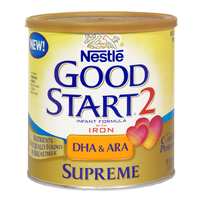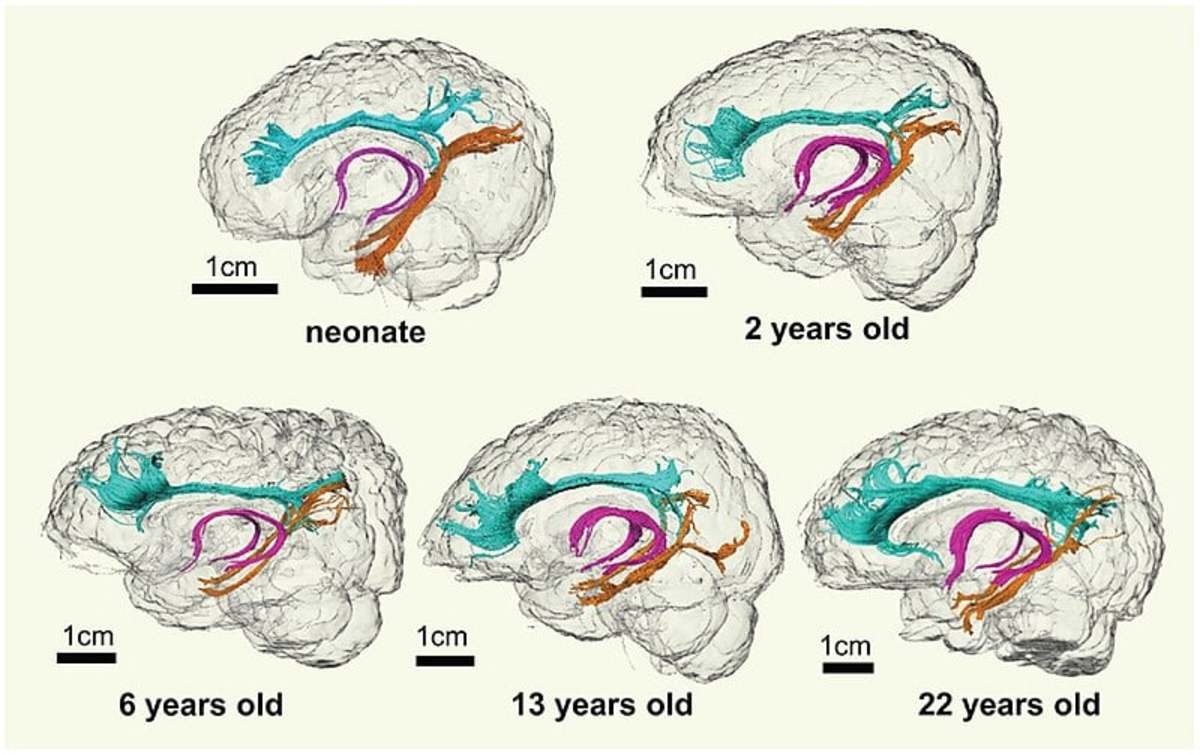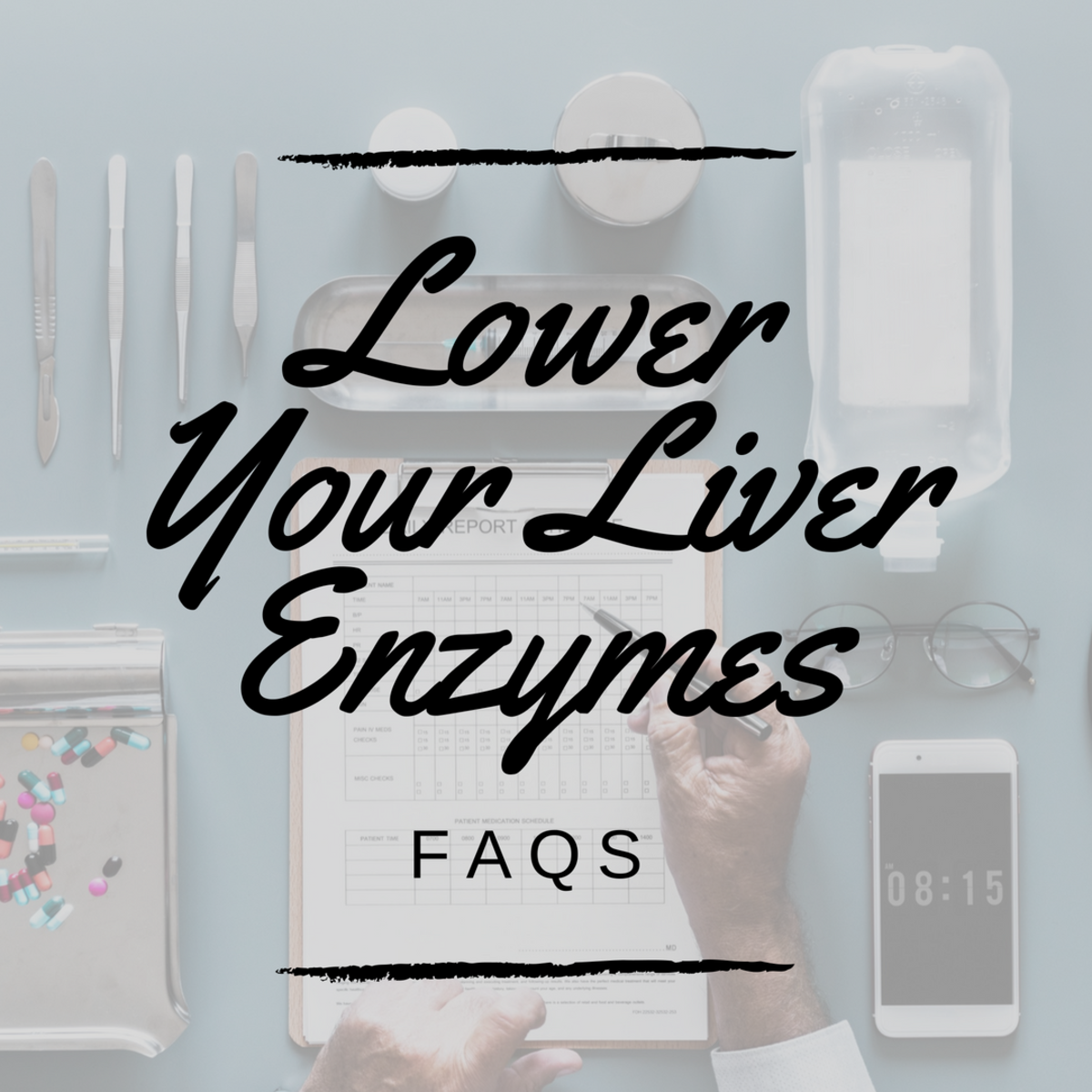What are you feeding your baby? Could another type of formulae increase their mental performance?
LCP supplementation to infant formulae - yes or no?
Introduction to the topic:
The purpose of this report is to construct a case as to whether or not Long-chain polyunsaturated fatty acids (LCP), primarily Docosahexaenoic acid (DHA) and Arachidonic Acid (AA), should be added to infant formulae. In this report the term supplemented formula refers to the addition of LCPs (DHA and AA) where the non-supplemented formula refers to the lack of added LCPs.
The Science:
LCPs are fundamental in the development of the central nervous system especially cortical metabolism and cognitive development [4]. They are partially responsible for the synthesis of myelin and the formation of cortical circuits [4]. During the early stages of life LCPs are vital in the production of an effective immune system as well as brain, retinal and tissue formation [6]. AA assists in the production of prostaglandins and leukotrienes whereas DHA is responsible for the mobility, permeability, and elasticity of cell membranes [1]. DHA is also crucial in infant neurodevelopment as it guarantees “normal neural tissue growth” [2]. A study by Crawford et al. showed that infants given supplemented formula displayed seven times the amount of esterified choline levels than those who had the non-supplemented formula. Esterified choline is a component of phosopholipids, which are used for the production of eicosanoids [3]. DHA levels assist in the regulation of glucose metabolism [9]. DHA can also protect tissues in the body from oxidative injury and stress [9].
DHA and AA make up 25% of the total fatty acid content in the brain and therefore is crucial for the anatomical structure of the central nervous system [6]. AA facilitates electrical conduction in neurons and is required for brain plasticity [6]. AA is responsible for the maturation and repair of neurites – an essential mechanism in infant development [6]. AA is a precursor for the mediators and regulators of the inflammatory response [6]. AA also plays a role in cellular signaling and gene expression [6]. During infant growth AA contributes to normal bone formation and efficient muscle contraction [6]. DHA is recognized as essential for normal brain function and is important for optimal visual development in infants [9].
Adequate DHA intake has been shown to improve cognition and behavior in children [9]. One study showed that a dietary DHA supply positively affects performance on the “Bayley mental development index” in 12 month olds [5]. Although, another study showed that DHA supplementation had no effect on “Bailey mental development index” scores at 18 months of age [6]. Further research is needed to clarify this picture.
In humans, DHA is necessary for the development of the frontal lobe beginning at 6 months of age and determines the outcome and effectiveness of the individual’s cognitive function. This has been linked to a child’s social, emotional and behavioral development [9].
Impaired or deficient biosynthesis of LCP in infants can reduce postnatal growth and weight [5]. In the brain development of infants a deficiency of LCPs prevents the synthesis of myelin lipids needed for normal neuronal function [6]. Inadequate dietary DHA and AA can increase the risk of chronic lung disease, late onset-sepsis and childhood autoimmune diseases [6]. It has been recorded that a deficiency in AA content can cause abnormalities in physical movements at 12 weeks of age [6].
Pre-term birth has a significant risk of neurodevelopmental impairments. As essential LCPs are crucial components of cell membranes it has been suggested that supplementation may decrease risk of brain injury for pre-term infants [1]. A study has shown that adequate pre-term DHA blood levels are linked with lower occurrences of intraventricular hemorrhaging [1]. DHA is vital in lowering the risk for a potential haemorrhage in newborns due to it’s role in cellular “membrane elasticity and resistance to pressure changes” [1]. DHA levels also improve microstructural growth in white matter in 30-36 month olds [1]. Pre-term and term infants cannot synthesize adequate DHA from the alpha-linoleic acid (ALA) found in the non-supplemented formulae [2]. The addition of LCP to the conventional formulas is necessary therefore to achieve adequate levels of DHA.
Postnatal depletion of DHA in healthy preterm infants reduces rod function (eyes). A scientific journal suggests that this can lead to retinal dysfunction in later life [3].
Crawford et al. showed that infants fed AA and DHA supplemented formula were less likely to develop stage II and III necrotizing enterocolitis then infants fed non-supplemented formula. However, frequencies of bronchopulmonary dysplasia, septicemia, and retinopathy were not affected [3].
Supplementation of DHA and AA has positive effects on cognition in pre-mature infants. This is because they are deprived of the maternal DHA and AA supply in the last trimester [4]. Researchers have discovered positive effects on cognition in infants at 6 months and at 20 months in terms of attention capacity who have had supplemented formula as opposed to non-supplemented [4]. A study found that in their experimental trial supplementation of DHA and AA improved recognition memory and attention in 6 month olds [4]. However, a long-term study of infants that were and were not supplemented with DHA and AA formula in the postnatal period found that there were no differences at 8 years of age in terms of cerebral white matter and behavioral problems. Given this long time period there are a number of unknown confounding variables that could have contributed to this outcome, requiring further research to clarify [4].
There was a concern from in vitro studies that LCP supplemented formula may have reduced absorption without the presence of breast milk enzymes, implicating that the digestion and absorption of LCP from formula in infants may be ineffective. Further studies have since disproved this argument [5].
LCP supplementation can decrease absorption of vitamin E. Researchers showed that in infants LCP supplemented formula decreases vitamin E levels [5]. DHA and ARA must be attained from dietary sources in infants, internal synthesis is not enough to meet their needs especially when supply for growth and development is critical [6] in the first two years of life [9]. This was explored further by Koletzko et al. where low birth weight infants were fed LCP-free formulae and rapidly developed depleted LCP levels indicating that the capacity of infants to synthesize LCP is limited in early life [5]. Hadley et al. showed that in infants who have supplemented formula there is an increase in growth/weight and visual function as opposed to non-supplemented infants [6]. As well as alleviating deficiency dietary sources of DHA and AA can improve immune function in the first year of infancy [6].
Low blood levels of LCPs have been found in children that suffer from dyslexia, autism, ADHD [6] and dyspraxia [9]. However, benefits for cognitive development, visual function and healthy blood pressure have been recorded beyond the period of supplemented formula and into childhood [6]. Research also shows that LCP supplemented formula improves motor development in infants [7].
The method of adding LCP to our current formula would need to be carefully considered. The metabolism of DHA varies as molecules can differ in structure, melting point and composition [2]. This is because of the carbon numbers and double bonds affecting the crystallization profiles of the molecule. Only fatty acids that have a melting point below internal body temperature can be absorbed [2]. One study showed that the melting point in five commercial Infant formulae (IF) were significantly higher than that of human milk. It is yet to be determined if infants have the capacity to effectively absorb these formulae [2]. There have been instances where LCP from fish oil have caused longer bleeding times in infants due to the EPA levels in marine oils this did not happen from single cell oil sources. It is therefore essential that the source of LCP, its biological substrate and potential contaminants be carefully considered [8].
My recommendation:
At this point, I have considered how the addition of LCPs would affect infant development in a number of areas including neurological and physiological. I have highlighted the health benefits of LCPs in infants and there appear to be many. The specifics of how LCPs are added however need to be very carefully thought through to avoid unintended consequences. Nevertheless, if we are able to formulate an LCP additive with the certainty that it will be absorbed and metabolized by infants (eg. Using single cell oil sources) I recommend supplementation should occur. This decision is supported by the evidence that LCPs are necessary for healthy/normal infant development especially in pre-term newborns during their first few months of life and thereafter [1-9].
Reference list :
- Tam EWY, Chau V, Barkovich AJ, Ferriero DM, Miller SP, Rogers EE, et al. Early postnatal docosahexaenoic acid levels and improved preterm brain development. Pediatric Res. 2016 Jan, DOI: 10.1038/pr2016.11
- Liu Z, Cocks B, Rochfort S. Comparison of molecular species distribution of DHA-contaning triacylglycerols in milk and different infant formulas by liquid chromatography. Journal of agricultural and food chemistry. 2016,64,2134-2144. Pubmed DOI: 10.1021/acs.jafc.5b05920
- Crawford MA, Golfetto I, Ghebremeskel K, Min Y, Moodley T, Poston L, et al. The potential role for arachidonic and docosahexaenoic acids in the protection against some central nervous system injuries in preterm infants. Lipids. 2003;38:303-15
- Almaas AN, Tamnes CK, Nakstad B, Henriksen C, Grydeland H, Walhovd KB, et al. Diffusion tensor imaging and behavior in premature infants at 8 years of age, a randomized controlled trial with long-chain polyunsaturated fatty acids. Early human development. 2016;95:41-46
- Koletzko B, Edenhofer S, Lipowsky G, Reinhardt D. Effects of a low birthweight infant formula containing human milk levels of docosahexaenoic and arachidonic acids. J Pediatr Gastroenterol Nutr. 1995;21:200-208
- Hadley KB, Ryan AS, Forsyth S, Gautier S, Salem Jr N. The essentiality of arachidonic acid in infant development. Nutrients. 2006;8:1-47. Pubmed DOI: 10.3390/nu8040216
- Muskiet FA, Goor SA, Kuipers RS, Velzing-Aarts FV, Smit EN, Bouwstra H. Long-chain polyunsaturated fatty acids in maternal and infant nutrition. Prostaglandins, leukotrienes and essential fatty acids. 2006;75:135-144
- Bondia-Martinez E, Lopez-Sabatar MC, Castellote-Bargallo AI, Rodriguez-Palmero M, Gonzalez-Corbella MJ. Fatty acid composition of plasma and erythrocytes in term infants fed human milk and formulae with and without docosahexaenoic and arachidonic acids from egg yolk lecithin. Early human development. 1998;S109-S119
- Kuratko CN, Barrett EC, Nelson EB, Salem Jr N. The relationship of docosahexaenoic acid (dha) with learning and behavior in healthy children: a review. Nutrients. 2013;5:2777-2810. Pubmed DOI:10.3390/nu5072777

Supplemented or not?
Would you choose LCP supplemented formulae after reading this?
Resources.
I am a Masters student at Deakin University, Australia. I am studying Human Nutrition specialising in Food Policy and Public Health. I assure you my facts are collected from University resources and journal articles.










